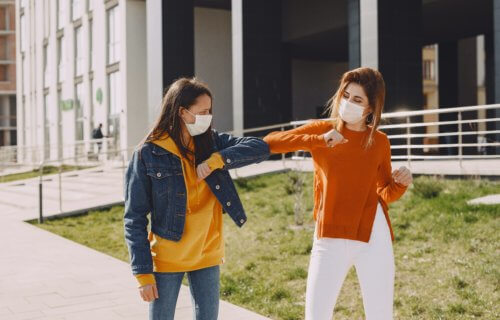WASHINGTON — In many parts of the world, social distancing has become the law of the land. While most health officials agree this is helping to curb the spread of the coronavirus, a new study warns it may eventually backfire. Researchers say continuing to socially distance may weaken the human microbiome, making people more vulnerable to future infections.
A team in Portugal is reviewing what they call the “double-edged sword” of social distancing. They find there are two critical ways this practice during the pandemic may be helping and harming the gut microbiome.
“Our behaviors have consequences,” lead author Teresa Nogueira says in a media release. “We are doing social distancing, which makes sense during the pandemic. But in the long term, social distancing can have consequences on the biodiversity of our microbiota.”
Is social distancing bad for your gut health?
The study examines recent findings amid the global pandemic to see how the public’s gut health is reacting to isolation. Researchers say there seems to be a connection between social isolation and less diversity of healthy gut bacteria. They add when people suffer from an extreme lack of bacterial diversity, it can lead to a condition called dysbiosis.
Studies show patients with dysbiosis have higher risks of suffering opportunistic infections and contracting influenza infections in their lungs. In terms of COVID-19, hospitalized patients face greater chances of developing dysbiosis.
The Portuguese team theorizes that social distancing creates a more inviting environment for dysbiosis and that condition weakens a patient’s response to COVID-19. This vicious cycle may end up making new coronavirus patients sicker, causing governments to continue enforcing social distancing rules, and further enflaming dysbiosis in the general public.
Social distancing may benefit gut health in other ways
The study also finds quarantine orders may be having a positive impact too, especially when it comes to antibiotic-resistant germs. Researchers suggest social distancing rules could be limiting the spread of drug-resistant bacteria. Studies find taking medications leads to more antibiotic-resistant genes in a person’s gut. Although contact with other people spreads gene diversity, it can also spread resistance to antibiotics as well.
“In situations where people avoid one another, we would expect to break this transmission,” Nogueira explains. “In these populations, the resistant bacteria tend to disappear over time.”
Study authors caution that both of these conclusions still need to be examined thoroughly before anything can be proven. For now, social distancing will continue as the world waits for a vaccine for COVID-19.
“We’re not suggesting any changes to control strategies,” Nogueira says. “We want to ask the scientists working in the field to check for this. This is the window of opportunity to do so.”
The study appears in the journal mSphere.
Like studies? Follow us on Facebook!
